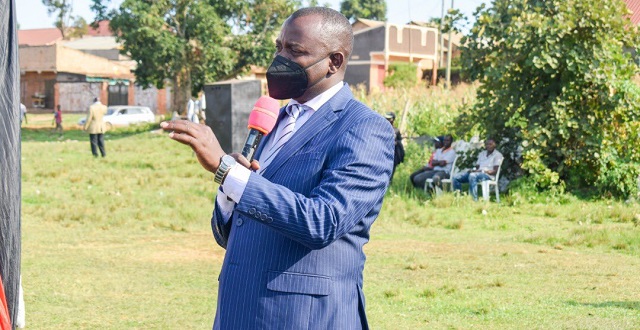
Kampala, Uganda | THE INDEPENDENT | Groups and Savings and Credit Cooperative Organisations, SACCOs that have utilized funds under the Emyooga program, will be rewarded with another 20 Million Shillings as seed capital.
This is aimed at encouraging good practices among beneficiaries of the presidential wealth creation program launched in 2019 to lift at least 68 percent Ugandans “from subsistence to market-oriented production. Beneficiaries that have failed to repay the money will be arrested.
The State Minister for Microfinance, Haruna Kasolo who is on a tour across the country as part of efforts to track the performance of the Emyooga says that in some areas, officials and beneficiaries are in hiding after misusing the funds, while others are hailing its performance.
This also comes as the Micro Support Centre-MSC marks 20 years of existence accessing affordable credit to micro, small and medium enterprises.
Kasolo says that some Sacco leaders have adjusted the lending terms for their members without the approval of either the MSC or the Ministry, which is an offense.
“I have received reports that some Emyooga SACCO leaders have increased the interest rates without permission. I am ordering you to stop with immediate effect. Emyooga SACCOs should remain at 8 percent per annum across the country,” says the minister in a warning to errant leaders.
He says the success of the Emyooga is measured by the repayment and savings levels of the beneficiaries, giving an example of Ibanda Municipality Tailors Sacco. They got 30 million shillings from the program and have a 20-million-shilling share capital.
Since October, the group members have saved 15 million shillings and accumulated their capital to 72 million shillings. They have also given out 77 million shillings in loans and recovered 41 million, which Minister Kasolo says is a good example of a success story.
To date, a total of 6,813 Emyooga SACCOs are fully registered and 231 Billion shillings has been disbursed. According to the centre, 554.3 Billion had been mobilized in savings by December 2021, to 594,475 beneficiaries.
The Emyooga program functions as a revolving fund for members of SACCOs and is not supposed to be returned to the government. However, the beneficiaries must return the money lent to them by their SACCOs so that more members also benefit.
The MSC Deputy Executive Director, Petronilla Hellen Masika said the event also marks the end of the grace period for those who have defaulted and they are going to be hunted.
She says some beneficiaries stubbornly refused to pay back the money saying it was a political move by the government to win the 2021 general elections.
The idea of the Emyooga was mooted just before the outbreak of the Covid 19 pandemic, and when the virus set in, the fund had to be adjusted to cater to the new challenges being faced by Ugandans.
The financial sector had to find ways of ensuring that the customers are helped to survive the effects of the pandemic, and as a result the MSC also had to reschedule some of their credit facilities.
Masika says even recovery of the funds loaned out across all their programs became hard to collect, and instead, they had to find new ways of helping businesses, including giving technical knowledge.
There have also been complaints about the amount of the money given out, with others dismissing the fund as irrelevant that 30 million shillings is too little for a group to benefit from.
But this fund was aimed at helping the subsistence sector and if well used, would go a long way to boost the livelihoods of the beneficiaries.
Masika admits that the money was little, but says the government is ready to invest more this year, with those groups that have utilized the money according to the objectives, set to receive another 20 million shillings.
According to Masika, the government also expected that some of the beneficiaries would have grown big enough to access credit and these will be given direct credit but still at a low-interest rate.
Masika also explained how they measure the success or the impact that their funds have had on an individual beneficiary.
*****
URN
 The Independent Uganda: You get the Truth we Pay the Price
The Independent Uganda: You get the Truth we Pay the Price



